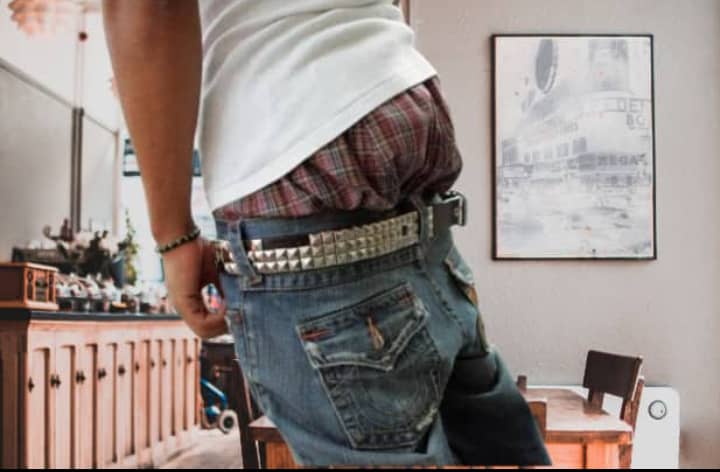The Alarming Moral Decadence of Nigerian Youths: A Call to Action
By: ALABI Qozim Diekola (MCPN)
The Nigerian youth of today is obviously facing a moral and dressing crisis that is both alarming and heartbreaking.
The decadence in dressing and hairstyles particularly among young men and women, is a reflection of a deeper societal problem that needs to be addressed urgently.
From sagging trousers, hair dreadlocks to men earrings, tattered jean, to uncultured slippers wearing.
Seriously, the dressing sense of many Nigerian youths is far from corporate and respectable these days.
It’s disheartening to see young girls dressing in ways that objectify them, while young men make hairstyles that make them look unkempt. The trends of wearing slippers to lectures is not only unbecoming but also indicative of a lack of discipline.
How can we expect these young minds to learn to dress corporately when they get employed in respected organizations if they’re not taught the importance of dressing well from a younger age?
It’s uncultured seeng young people dyeing their natural black hair to varied colors, most especially the youruba trained youths that supposed to upheld the moral and unique culture of youruba race, this act goes against traditional norms and cultural values of Yoruba land.
The effects of this moral and dressing decadence are far-reaching and can have serious implications on the future of these young people.This is why insulting or even attacking lecturers and teachers are becoming a common news in Nigerian schools and higher institutions of learning.
These bad habits reflects poorly on some individuals, their parents, and their institutions of learning, it shows the kind of brought up, the kind of parents we are and the kind of students we nurtured as an institution of learning.
Hence, such retrogressive habits is a reflection of non proper guidance and discipline which can hinder their chances of success in their chosen careers, it is also a sign of no respect for authority.
How come can these young mind becomes a patriotic citizens when they refused to obey simple moral institutional rules?.
So, what’s the solution to these menace? It requires a collective efforts from all stakeholders.
Parents, Education Administrators, Rectors, Vice-Chancellors, Provosts; all relevant authorities must come together to instill discipline and a sense of professionalism in these youths.
Parents must teach their children the importance of dressing well and being respectful. Gone are those days when a slap of our mothers is enough to reset our brains, gone are those days when anyone can help discipline our children when going astray.
Educational institutions should play their part, by enforcing dress codes and promote a culture of discipline. It’s amazing that most institutions are tired of enforcing moral ethics, unlike in those days when students will be sent back home right from the school gate for indecent dressing.
Lecturers and teachers must also set good examples and encourage their students to dress corporately as they engage them in the classrooms. Constant moral talks during lectures will also do some behavioral repairs to these young minds.
As a result of the above, a cultural shift to the oldens days is urgently needed, promoting a culture that values discipline, hardwork, and professionalism.
While its important that our youths must take pride in their appearance by dressing in a way that reflects positively on themselves and their institutions, imagine a banking or accounting students wearing tattered jean to lectures, gone are those days when you can easily differentiate students of higher learning from the garage boys and touts.
In addition, it’s time for a wake-up, we owe it to ourselves, our children, and our society to promote a culture of discipline, professionalism, and respect.
Let’s work together to build a brighter future for our youths, we can start by taking a closer look at our values and practices, and making conscious efforts to instill positive values in them.
Let’s always remember that, the future of our nation depends on the quality of our youths, let’s invest in them, let’s guide them, and let’s give them the tools they needed to succeed.
Ultimately, we can do more better, and we must do better. The time for change is now.
ALABI Qozim Diekola (MCPN)
16th June, 2025.
![]()















Leave a Reply